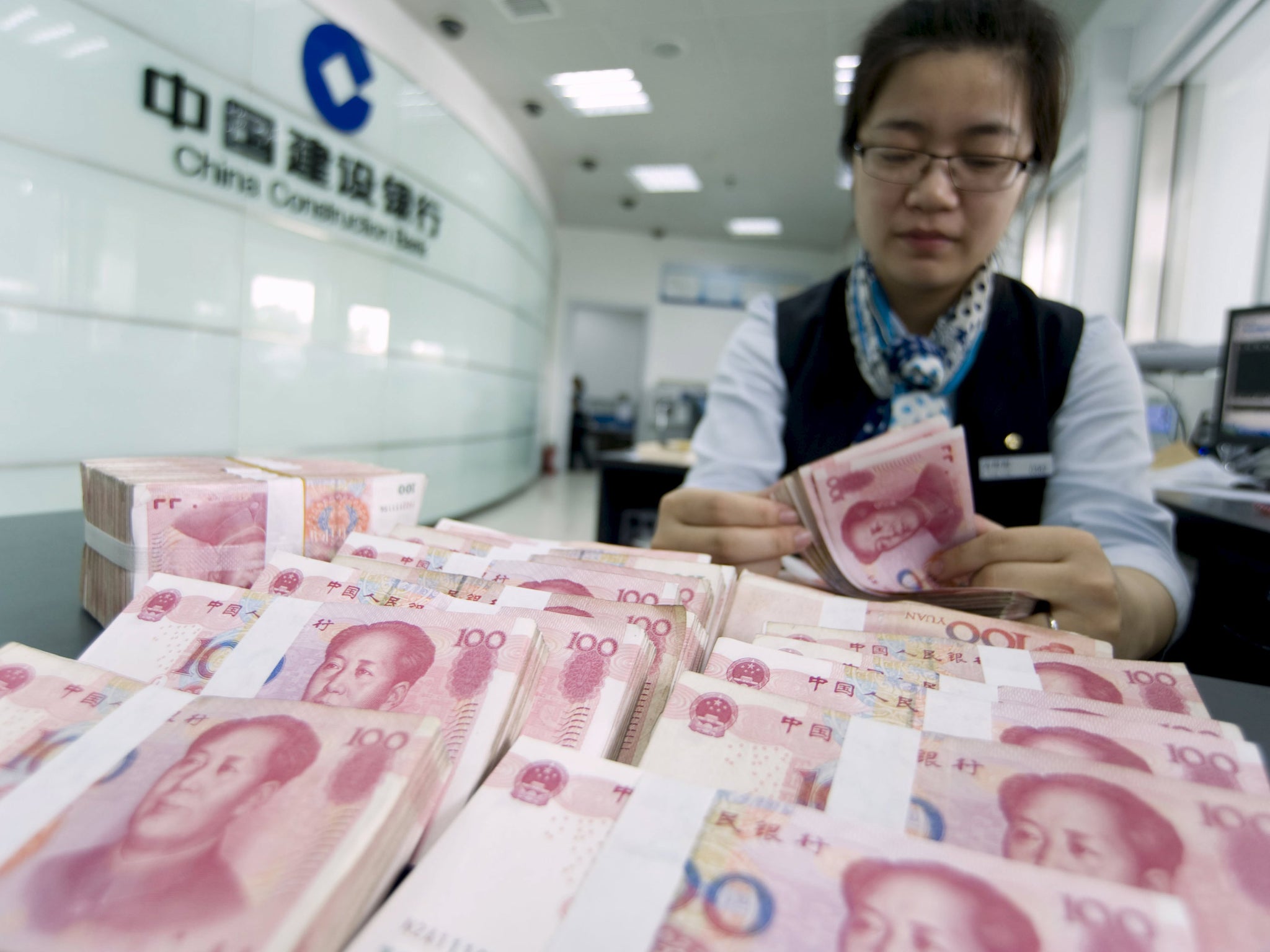China moves to calm fears over global currency war
Beijing signals yuan will not keep on falling, despite second devaluation

The People’s Bank of China has sought to play down expectations it will launch further strikes in a new global currency war, after Beijing rocked world markets with a second devaluation in two days.
“In view of both domestic and international economic and financial conditions, currently there is no basis for persistent depreciation of [the] renminbi”, the central bank said in a statement. “Recently, major economic indicators stabilised and showed good signs, which provides a favourable macroeconomic environment for a stable renminbi.”
The statement came after a day of turmoil in global financial markets sparked by Beijing’s second devaluation against the dollar in two days.
London’s benchmark FTSE 100 index retreated 1.4 per cent and the Eurofirst 300 index dropped by 2.7 per cent. In the US the S&P500 opened down 1.22 per cent.
Traders sought refuge in government bonds, driving down yields on ultra-safe US Treasury debt and UK gilts. The yield on two-year German bunds hit a record low of 0.27 per cent.
The devaluation is a fillip to China’s exporters, but will beat down global commodity prices and hammer large Western companies that export to China.
So far this week China has devalued the yuan almost 4 per cent against the dollar. And some analysts believe Beijing’s policymakers ultimately want the currency to fall around 10 per cent against the greenback.
China has digested a raft of weak economic data in recent weeks, fuelling fears of a hard landing for the world’s second-biggest economy. Factory output rose at a slower rate than expected in July. And in a likely hangover from China’s stock-market collapse hitting consumer confidence, retail sales also eased. There was also a shock 8.3 per cent annual fall in exports last month.
Neil Mellor of BNY New York Mellon said it was “impossible to say” how far the yuan could fall. He added: “In essence it could go quite a way, given the way it has appreciated over the last year on the back of the dollar.”
Until the devaluation, the yuan had appreciated 13 per cent in the past 12 months on a trade-weighted basis, according to the Bank for International Settlements.
China previously let its currency trade around a narrow band but is now allowing market forces have a greater say in setting its value, as the yuan seeks reserve currency status from the International Monetary Fund. The IMF has said that greater exchange-rate flexibility is “important” for China to integrate fully with global financial markets.
Lei Mao, of Warwick Business School, said: “Though the devaluation itself should be no surprise, the aggressive and unpredictable way the People’s Bank of China is implementing it is a huge shock to international investors. It will dampen the confidence of investors in holding yuan, and affect the process of the internationalisation of the renminbi.”
But Bill Dudley, the president of the New York Fed and a close ally of the chair of the US Federal Reserve, Janet Yellen, lent some support to China’s move. “If the Chinese economy is weaker than maybe what the Chinese authorities anticipated, it’s probably not inappropriate for the currency to adjust in consequence to that weakness” he said.
Subscribe to Independent Premium to bookmark this article
Want to bookmark your favourite articles and stories to read or reference later? Start your Independent Premium subscription today.

Join our commenting forum
Join thought-provoking conversations, follow other Independent readers and see their replies